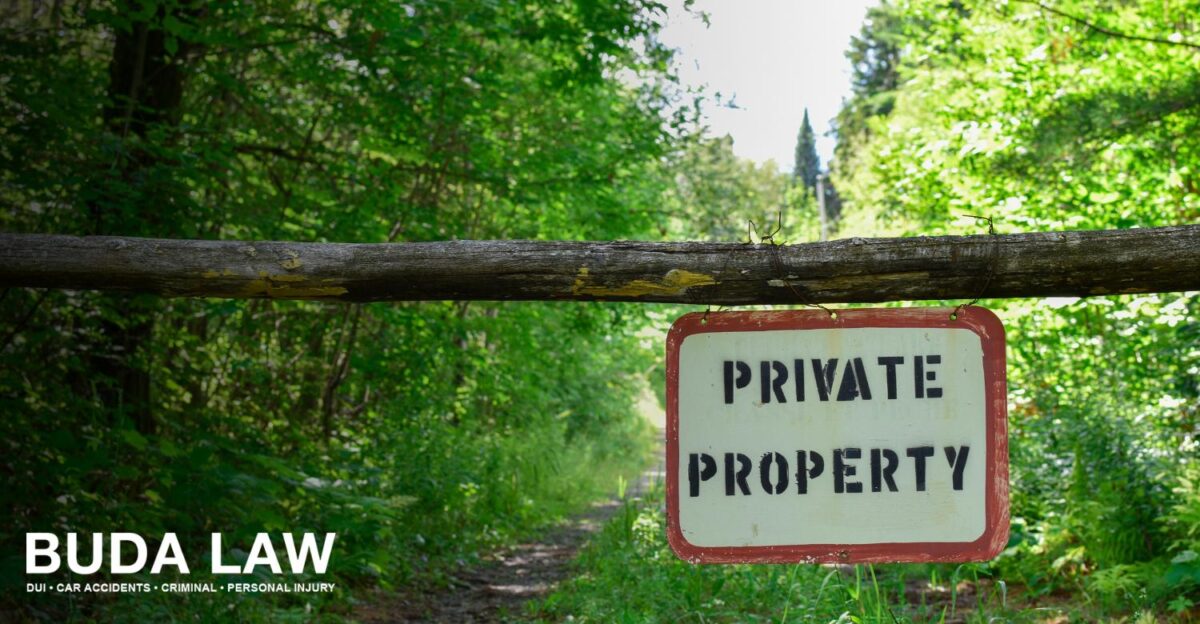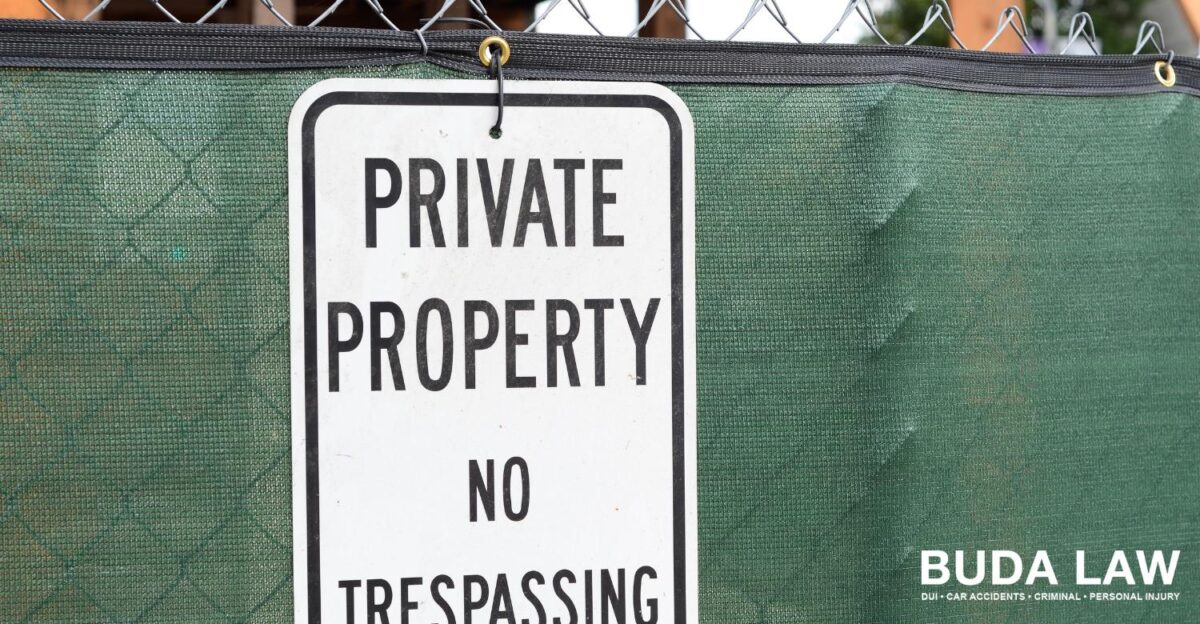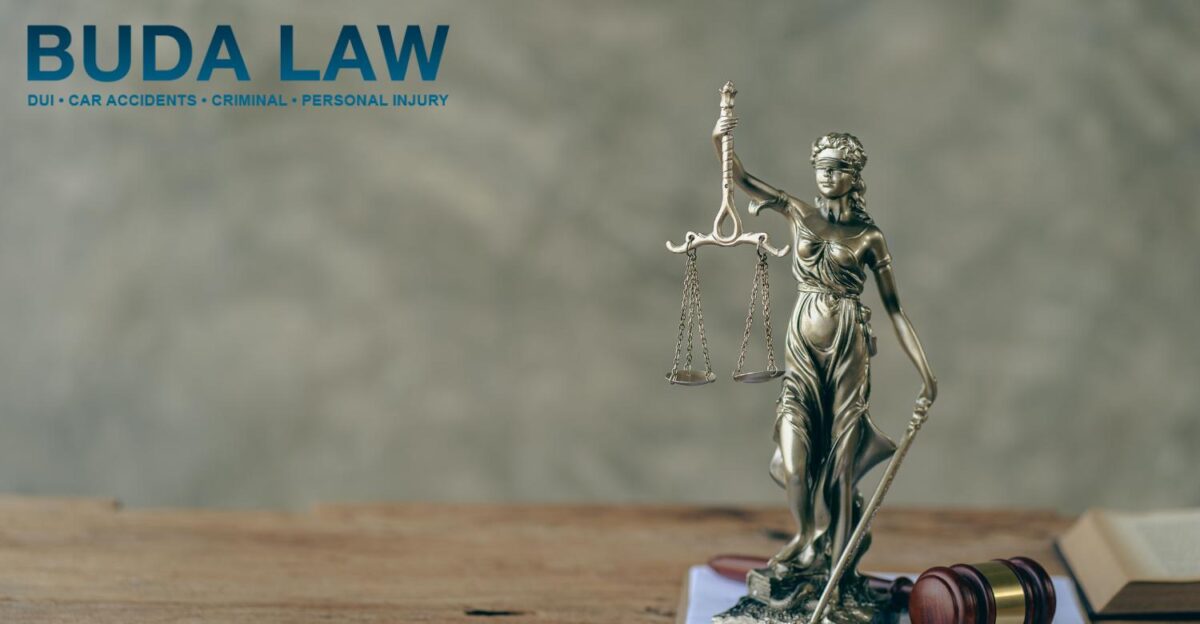If you have been accused of trespassing on someone else’s property, you need an experienced defense attorney who will help you receive the best outcome for your case. The Tampa criminal defense lawyers at Buda Law are prepared to fight for your freedom and help you receive a favorable plea deal or trial outcome. We can even help you have your charges dropped entirely.
Don’t let one mistake ruin your life–call our law offices at (813) 322-2832 to schedule a free consultation with Attorney Andrew Buda to discuss your case today.
What is Trespassing?
In general, criminal trespass is any willful entry into private property without being authorized, licensed, or invited onto the property by the property owner. Entering or remaining on private property, regardless of whether or not the property has an established structure or conveyance, is a criminal offense. Trespassing in Florida is punishable by jail time and/or a fine, depending on the circumstances surrounding the crime.

Trespassing Under Florida Law
There are multiple Florida statutes that outlaw trespassing, some of which include trespassing in a structure or conveyance, trespassing on property without entering a structure or conveyance, and trespassing on school grounds.
In order to be convicted, the person accused must trespass on property that they knew was private. Private property is defined in Florida law as any physical property ownership that is exclusive to an individual or group. This can include any:
- Structure;
- Dwelling;
- Conveyance (motor vehicle or other moving vessel);
- Posted land (land with “no trespassing” signs);
- Fenced land (land with fences);
- Cultivated land (field or other agricultural land); or
- Posted construction site.
Below are the legal guidelines for trespassing in Florida as well as the distinctions the law makes in regards to the severity of the crime.
Florida Statute 810.08 – Trespass in Structure or Conveyance
Under F.S. § 810.08, someone can be charged with trespassing if they willfully enter any structure or conveyance, without being authorized, licensed, or invited to do so. They can also be charged with trespassing if they willfully refuse to leave the structure or conveyance after being asked to leave by the owner or lessee.
At a baseline, this crime is a second-degree misdemeanor. However, it can be classified as a first-degree misdemeanor if the person who trespassed was on the property while another human being was also on the property. Trespassing can also be classified as a third-degree felony if the person who trespassed onto the property did so while armed with a firearm or other dangerous weapon, or if they armed themselves with such while on the property.
Florida Statute 810.09 – Trespass on Property Other Than Structure or Conveyance
According to F.S. § 810.09, if someone willfully enters or remains on posted, fenced, or cultivated land without permission, they can be charged with trespassing on property other than a structure or conveyance.
They can also be charged with this crime if they willfully enter or remain on an unenclosed curtilage with the intent to commit an additional crime. This includes any unenclosed land or grounds, as well as any outbuildings, that are intimately adjacent to and connected with a dwelling. These outside areas must also be necessary, convenient, and habitually used in connection with the dwelling.
At a baseline, this crime is a first-degree misdemeanor, but it can become a third-degree felony if someone trespasses on a construction site or if they trespass while armed with a firearm or other dangerous weapon.
Florida Statute 810.097 – Trespass Upon Grounds or Facilities of a School
F.S. § 810.097 outlines trespassing on school grounds. If someone does not have legitimate business on a school campus or if they are a student who has been expelled and they enter or remain on school property, they can be arrested for trespassing.
In its base form, trespassing on school grounds is a second-degree misdemeanor. If the person trespassing has been specifically asked to leave or told not to enter by the school’s principal, then it is a first-degree misdemeanor.
The school’s chief administrative officer or any employee designated by the chief administrative officer is allowed to detain the trespasser until the authorities arrive. Police and other law enforcement personnel can arrest anyone on or off school property if they have probable cause to believe the person has trespassed on school grounds.
Required Elements for Trespassing Conviction
In order for the prosecution to prove that the defendant (or the person accused of the crime) actually trespassed, they have to prove a few elements were present at the time of the crime. If the defendant trespassed in a structure or conveyance, prosecutors must prove that:
- The defendant willfully entered the property;
- The property was rightfully owned by the person who alleged the defendant was trespassing; and
- Entering or remaining in the property was done without permission.
If the defendant trespassed on property without entering a structure or conveyance, the prosecutors must prove that:
- The defendant willfully entered the property
- The property was rightfully owned by the person who alleged the defendant was trespassing;
- The defendant received notice not to enter the property through signs, fences, or actual communication; and
- Entering or remaining in the property was done without permission.
However, if there is no evidence to prove that the defendant was not welcome onto the property, the police do not have probable cause to suspect them of trespassing.

Is Trespassing a Felony in Florida?
Yes, sometimes trespassing is a felony criminal offense in the state of Florida. If someone willfully enters private property without permission, and they are armed with a deadly weapon, they can be charged with a third-degree felony.
However, it’s important to note that trespassing is not always a felony crime, and can sometimes be classified as a misdemeanor. If you trespass on property without a weapon, you could be charged with a first or second-degree misdemeanor punishable by jail time, fines, and potential probation.
Also, if you trespass on property with the intent to commit a crime, you may be charged with burglary which is a felony charge regardless of the severity of the crime. The penalties for burglary in Florida are much more severe than those for trespassing.
What are the Penalties for Trespassing in Florida?
The potential penalties for a trespassing charge vary depending on the circumstances surrounding the crime. As you might expect, a trespassing misdemeanor charge will have less severe consequences than a trespassing felony charge. Below are some of the penalties someone can be sentenced to for a criminal trespass charge.
- Third-degree felony: up to 5 years in state prison, up to 5 years probation, up to $5,000 in fines
- First-degree misdemeanor: up to one year in jail, up to one year of probation, up to $1,000 in fines
- Second-degree misdemeanor: up to 60 days in jail, up to 6 months probation, up to $500 in fines
Can a Property Owner Detain a Trespasser in Florida?
Yes, according to Florida state law, a property owner or person authorized by the owner can reasonably detain a person who they believe has trespassed or will trespass on their property. They can only do this if the culprit poses a threat to persons or property at the time of the detainment.
People who can be authorized to detain the trespasser include any owner, lessee, or his or her agent. Law enforcement officers on the property can also detain someone for trespassing, but only if they have express written authorization from another authorized person, which allows them to order someone to leave if they pose a threat.
After the person accused of trespassing has been detained, the local authorities must be called as soon as possible. The person can remain detained until the authorities arrive. When done in accordance with the law, the person who detained the trespasser will not be charged with false arrest, false imprisonment, or unlawful detention.
Lawfully detaining a trespasser is different from a property owner “standing their ground.” Florida’s stand-your-ground law allows property owners to use deadly force to protect themselves, their family, and their property from those who threaten to do harm.
How a Criminal Defense Attorney Can Help
If you have been charged with any crime, hiring a criminal defense lawyer can be the best decision you make in regard to your situation. A good criminal defense lawyer will investigate all the circumstances surrounding your alleged crime and find evidence that proves your innocence.
Not only that, but experienced criminal defense attorneys will know what tactics prosecutors will use at trial, allowing them to develop a strong defense for each of their clients. Defense lawyers can also make deals with state and federal prosecutors to help secure favorable plea deals, which often result in lower sentences for their clients.
If you have been charged with a trespassing crime, Buda Law is here to help. From petty misdemeanors to capital felonies, our legal professionals can help defend you against prosecution and help you secure your freedom. Call us at (813) 322-2832 to schedule a free case evaluation with our Tampa criminal defense attorneys today.
Defenses to Florida Criminal Trespass Charges
There are a few ways that criminal defense attorneys can defend against criminal trespass. The defendant’s legal team may claim that:
- The property wasn’t properly posted, making it impossible to assume it was private property
- There was no actual communication between the property’s owner and the defendant asking them to leave
- The defendant was invited onto the property
- The defendant did not willfully enter the property
- The alleged victim was not in lawful possession of the property at the time of the alleged crime
- The defendant received conflicting information regarding whether or not they should leave

Call the Tampa Criminal Defense Lawyers at Buda Law Today
Serious criminal charges like trespassing can affect so many aspects of your life, from your reputation to your freedom and beyond. If you have been accused of trespassing on private property, the skilled legal professionals at Buda Law are here to help.
With experience on both sides of the courtroom, Attorney Andrew Buda will know exactly what kinds of tactics the prosecution will use against you in court. He will work tirelessly to ensure you receive the best possible outcome regarding your criminal case. Call us at (813) 322-2832 or contact us online to speak with a member of our experienced team about your situation–at no cost to you.
